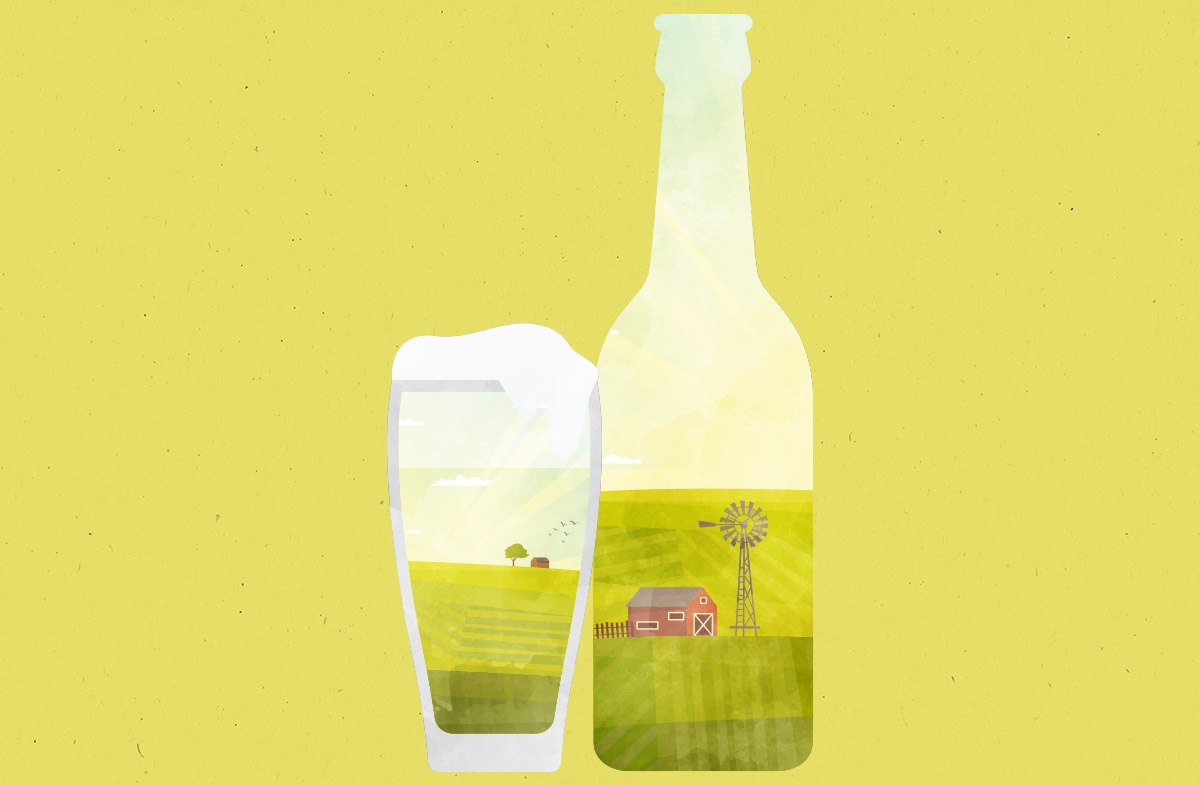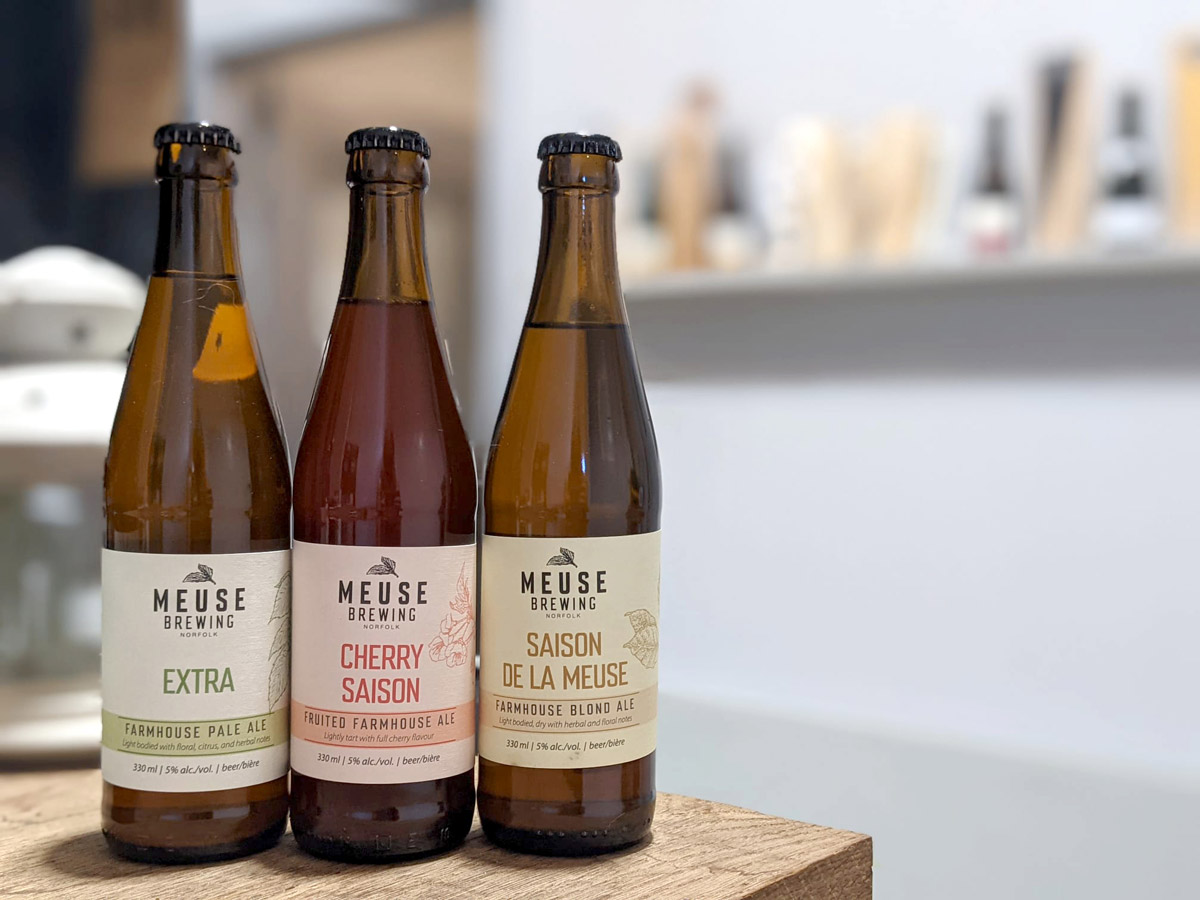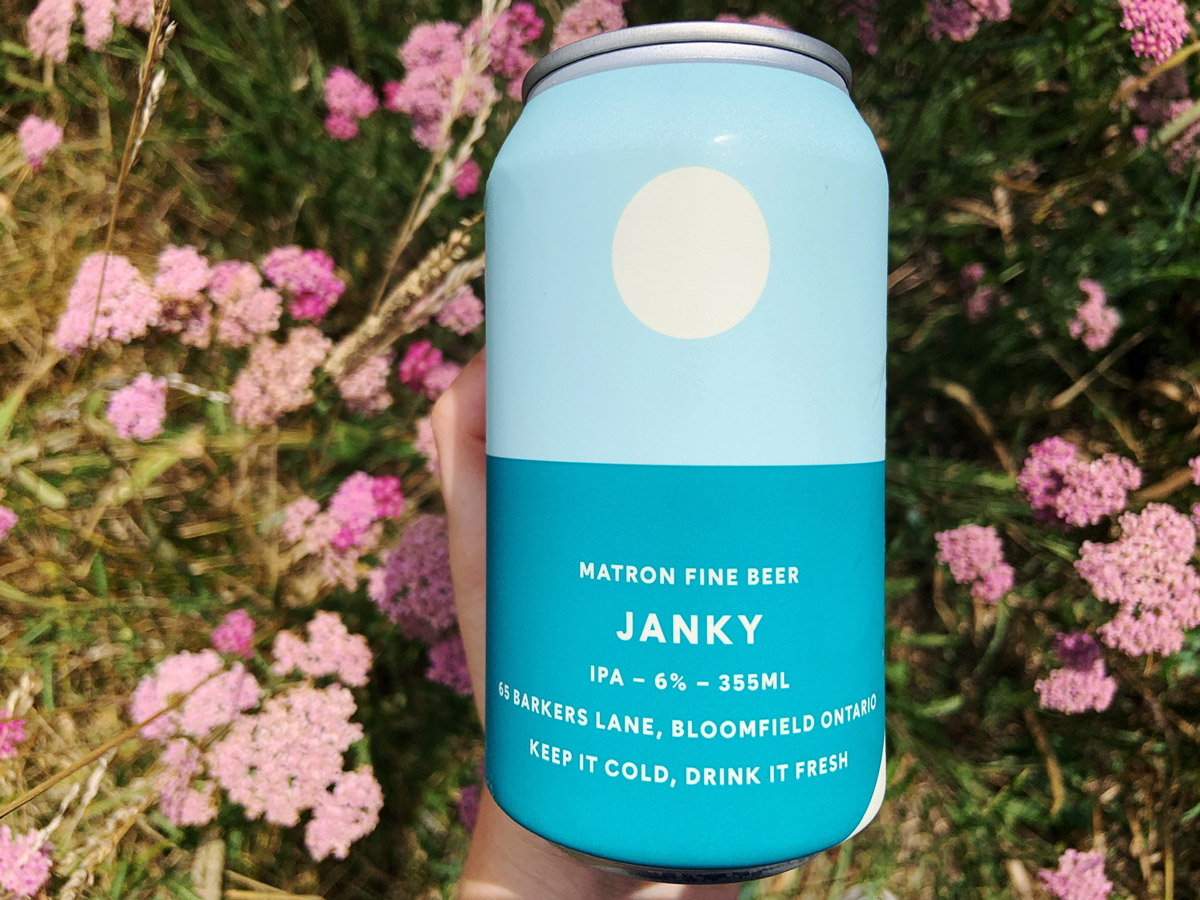How a small group of Ontario brewers are redefining the support local movement

Milos Kral, one of Ontario’s biggest craft beer boosters and owner of Milos’ Craft Beer Emporium, was making his weekly rounds in Toronto to pick up the city’s latest beer releases when he walked through the doors of Godspeed Brewery, where I work my day job. As I helped him load up his sagging SUV, bursting at the seams with flats of mostly hazy IPA and fruited sours, Kral lamented that farmhouse-inspired beers like those from Meuse Brewing were being overlooked. “Their stuff is as good as any of the best in Belgium,” he told me with a shrug.
Meuse could be a stand in for a small but growing number of breweries stubbornly sticking to the farmhouse tradition, which relies on sourcing ingredients locally. What Kral admitted compelled me to ask what made these local, farmhouse-inspired beers so unique? And why do their producers continue to source locally in a market that incentivizes exotic ingredients in a protracted supply chain?
According to Beer Canada, despite widespread lockdowns, domestic beer sales were up 2.5% in 2020 while import sales declined by a whopping 9.5%. Global supply chain issues notwithstanding, the trend towards buying local has continued in 2021 and breweries of all stripes are taking advantage, marketing #drinklocal or using locally grown hops or grain in one-off releases.
Look past the hashtags and you’ll soon discover that supporting local can mean more than you think.

Unlike most Ontario breweries who rely on malts from out of province or country, Meuse’s flagship saison uses barley grown in the field behind the quonset hut that houses their tiny brewing operation. Their barley lends their saison a darker hue, atypical for the style, and proffers mouthwatering notes of plum and dark raisins. All told, it’s incredibly distinctive; so much so you wouldn’t be faulted for thinking it was made in Belgium’s Pajottenland.
Co-founders Estelle van Kleef and Mischa Geven have been brewing award-winning farmhouse-style Belgian ales for the better part of a year on a shoestring budget. For Geven, opening their farmhouse-style brewery in Ontario’s bread basket only felt natural. “Norfolk County is a rich agricultural region so there’s a tonne of rye, wheat, [some] barley so it’s an easy transition going from one grain to another with that farmhouse mindset where you ask what can we do locally? What can we at least try?”
This farmhouse philosophy is shared by co-founders Mallory Jones and Justin Da Silva, who, along with Jessica Nettleton, opened Matron Fine Beer in Bloomfield, Ontario with the promise of brewing “beers inspired by where we live and what grows around us.” Since they opened in 2019, few breweries have championed local suppliers the way they have. “I know craft beer has been quick to adopt support local but most breweries are working with the same two large suppliers,” says Da Silva. Unlike their competition, they regularly work with nearby Pleasant Valley Hops and Barn Owl Maltings; going so far as to list the percentage of Ontario-grown ingredients used to make each batch on every can they package.

Janky, the brewery’s delicious flagship IPA, features 60% locally-grown ingredients, while other beers in their lineup range as high as 90%. “For us that’s what local is. It’s not just one touchpoint of manufacturing but more full circle,” says Jones. Nothing exemplifies that more than Janky, which uses local Cascade, Centennial, and Chinook hops in combination with other North American varieties to give it a unique field berry character that ebbs and flows with each batch.
Along with locally-grown grain and hops, breweries no longer have to resort to sourcing yeast from distant, industrialized labs. Calum Hill, founder and head brewer of Sonnen Hill Brewery in Caledon, sources certain yeast pitches from nearby Escarpment Labs in Guelph. “I text Richard [Priess, Founder of Escarpment Labs] at least once a week, usually with a question or an idea,” Hill tells me. “The farm isn’t fully reflected in all of our beers yet but the intention is for that to be the case.” On top of his farm well water, Hill uses Barn Owl malt for every saison or mixed-culture beer he creates, which constitutes over half of the brewery’s production.
Even so, you don’t have to look far to find how Hill’s focus on local ingredients has impacted Sonnen Hill’s offerings for the better. Take their recent collaboration with New Barns Brewery out of Edinburgh, Scotland, Nice One, a head-turning wheat lager with chamomile and local yarrow is a study in refined balance and restraint. “Once the hops started to fade, the yarrow remained, giving the beer a great floral, spice note that wouldn’t have been there otherwise,” Hill explains.
As distinctive as these beers are, working with local suppliers also comes with a fair share of challenges. “You have to be on your toes,” adds Hill. “The [malt] kernel can vary in size so you’re constantly adjusting your mill. Every time we mash in, we’re also doing a grist analysis [to ensure consistency].” What’s more, Ontario-grown ingredients by their very nature are better suited for traditional beer styles. Take the Newdale barley variety often malted by Barn Owl. Using it will result in a darker, grainier look and flavour profile than your typical 2-row pale malt. Similarly, local Cascade, as an example, will veer more toward an unassuming under-ripe stone fruit, field berry, or forest floor-like character instead of the bombastic grapefruit and pine character of its American equivalent.
With all of these headaches it’s natural to wonder why these breweries aren’t shifting resources in order to brew what’s popular? “What’s the fun if every restaurant was a McDonalds? […] I’m not going to be making what my neighbour does just because he makes it,” says Meuse’s Van Kleef. Unlike wine’s connection to the vineyard and cider’s connection to the orchard, beer is more associated with the stainless steel used to make it. “The more we go the way of the smoothie fruit puree pastry [beer], the more we’re losing sight that this is an agricultural product that has been a sustaining commodity for a long time,” cautions Da Silva.
Luckily, signs of life in the category are starting to bolster local suppliers. Barn Owl Maltings used to sell a quarter tonne at a time when they first started, with 90% of sales dedicated to one-offs from nearby breweries. Now orders of 5 tonnes or more are common, leading to plans to double their capacity this fall. The same goes for Escarpment Labs, who now supply over a hundred breweries province-wide. Work is underway to move into a much larger space in Guelph with sights set on opening their own taproom. Farms like Pleasant Valley, once at risk of pulling out hop bines, are dramatically expanding acreage to meet demand.
Bottom line: supporting local breweries using local ingredients has a major impact on your local community. Next time you’re on a beer run, consider purchasing beers that include Ontario-grown ingredients so that next time Milos Kral makes his rounds he’s filling his SUV with more than just beer made here, but beer made using the best of what Ontario has to offer.
Must Drink Ontario Base Beers
Sonnen Hill Brewing // Whiff
Meuse Brewing // Saison De La Meuse
Matron Fine Beer // Leisure Landbier
Muskoka Brewery // Harvest Ale
Quayle’s Brewery // Raised In A Barn




